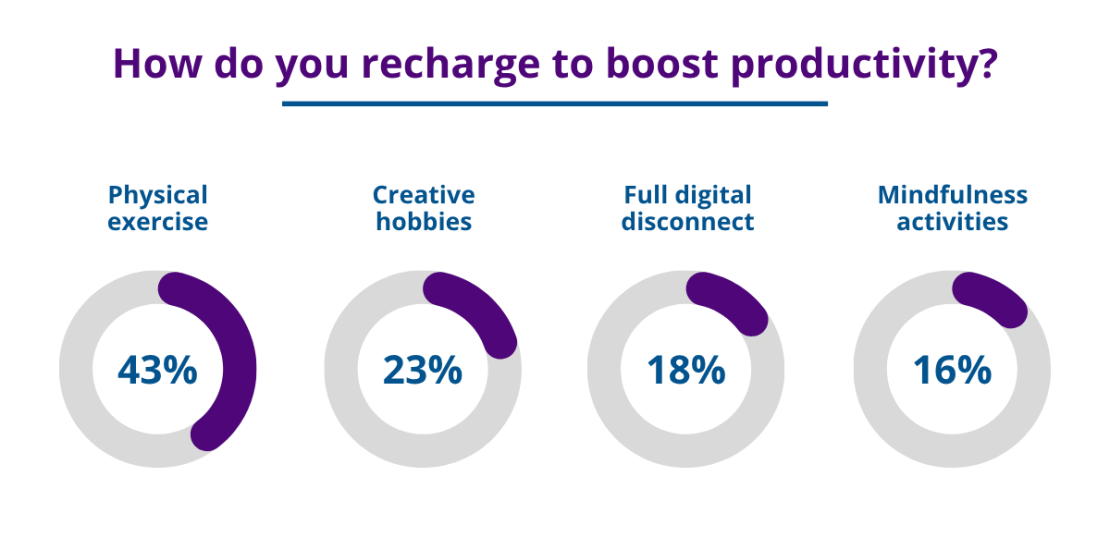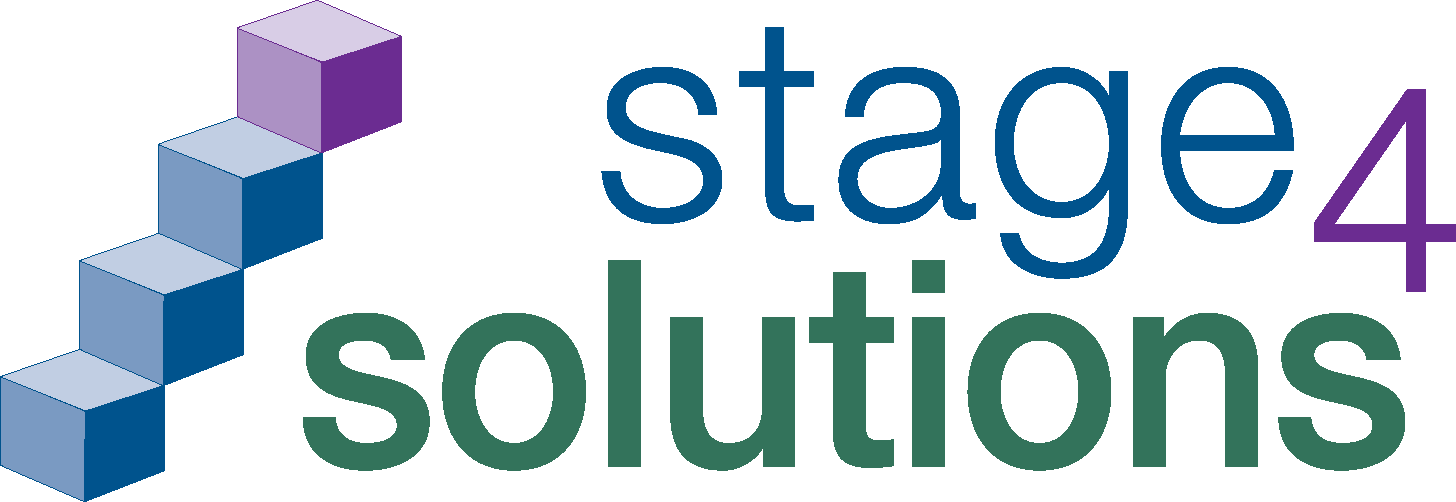Recharging for Results: How Professionals Are Beating Burnout
- June 24, 2025
- Posted by: Stage 4 Solutions
- Category: Blog

We live in an “always on” culture, and regardless of your role, consistent pressure without pause can sap focus, motivation, and resilience from you and your team. The real secret to productivity isn’t working nonstop, it’s knowing when to refresh and recharge.
According to a 2025 Forbes report, 66% of workers report experiencing job burnout, driven by blurred work-life boundaries, digital fatigue, and chronic stress. When employees burn the candle at both ends, it is not just a personal issue, it is a business risk that impacts overall performance and results. Fortunately, there are ways to restore energy and maintain momentum.
A burnout-resistant culture doesn’t emerge from a leadership message or an occasional day off. It comes from consistent actions from the top down, supporting both recovery and sustained performance. Encouraging breaks, setting realistic workloads, respecting after-hours boundaries, and modeling balance all signal that recovery isn’t a weakness; it is essential to long-term success. Organizations are beginning to recognize that engagement and endurance go hand in hand. A culture that treats rest as a strategic priority is better positioned to sustain innovation, retain talent, and adapt under pressure.
To learn which strategies professionals turn to when it is time to reset and refocus, we polled our community for their insights.
How do you recharge to boost productivity? (Single answer)
- Physical exercise: 43%
- Creative hobbies: 23%
- Full digital disconnect: 18%
- Mindfulness activities: 16%
The poll results reveal not only how professionals are actively fighting burnout, but also how they are reclaiming control over their energy and performance. Whether you are leading a team or focusing on your own well-being, exploring one or more of these strategies can be a valuable step toward staying energized and effective.
Physical Exercise: Movement as a Mental Reset
At 43%, physical activity stood out as the top method for recharging. Exercise has long been linked to cognitive benefits, including improved memory, sharper focus, and reduced anxiety. It is more than just a physical reset, it is a powerful way to strengthen resilience and maintain peak performance, especially under stress. Encouraging team members to make time for movement, even during the workday, can yield measurable improvements in focus and morale.
Creative Hobbies: Reconnecting with Joy and Flow
Coming in at 23%, creative hobbies such as painting, writing, music, or even cooking offer a break from the constant problem-solving and task-switching of the workday. These activities tap into the brain’s reward system and encourage a sense of “flow” — the deep engagement that can refresh the mind and lead to new ideas and perspectives. Setting up a ‘creative corner’ with puzzles, games, and drawing materials can give employees a quick way to recharge during the day. Offering workshops such as painting classes, creative writing groups, or cooking demos can give employees opportunities to explore hobbies and connect with colleagues, sparking fresh ideas and stronger teamwork.
Digital Detox: Unplugging for Clarity
18% of respondents chose a full digital disconnect as their recharge strategy. In our hyperconnected work environments, unplugging can seem counterintuitive, but even short breaks from screens and notifications can dramatically lower stress and improve sleep, mood, and decision-making. Encouraging no-meeting blocks, device-free lunch breaks, or screen-free evenings can help professionals mentally reset and return with better decision-making capacity.
Mindfulness: Powerful Practices for Today’s Workplace
16% favored techniques from meditation to deep breathing. These practices are linked to emotional regulation, reduced reactivity, and improved self-awareness, all critical tools for navigating the modern workplace with clarity and purpose. Even a few minutes of mindfulness each day can reduce reactivity, improve focus, and support more thoughtful interactions across teams. Whether your teams are remote and working in offices, short guided sessions or workshops can make a meaningful difference in helping employees reset and re-center throughout the day.
Recharging: A Shared Responsibility for Organizations and Individuals
It is clear that clocking more hours doesn’t always lead to better results. Sustainable productivity depends on intentional recharging. More organizations are recognizing this, offering flexibility in schedules, championing wellness initiatives and encouraging habits that support a healthier, more balanced approach to work. Left unaddressed, burnout can lead to disengagement, absenteeism, and turnover, which are all costly outcomes. But when organizations take a proactive role in helping employees recharge, they unlock higher levels of performance, creativity, and retention. Building a resilient workforce isn’t just good for people, it is good for business.
At the same time, it is important to realize that recharging isn’t about working fewer hours or neglecting responsibilities, but it is about taking personal ownership of how we maintain focus, energy, and effectiveness. It is not a trade-off between performance and self-care; it is a recognition that high-quality work depends on clarity, balance, and well-managed energy. When individuals carve out time to recharge, they are not stepping away from excellence; they are making it sustainable.
At Stage 4 Solutions, we believe performance and well-being go hand in hand. Helping employees recharge isn’t a perk, it is a necessity for long-term engagement, innovation, and retention. That’s why we integrate flexibility, empathy, and trust into the way we work. Whether it is through realistic workloads, space for creative thinking, or open conversations about balance, we empower our team to bring their best without burning out. When team members need time for family, health, personal matters or to recharge, we offer the flexibility they need because we trust our team members to manage their personal responsibilities while still delivering business results. Flexibility doesn’t mean a lack of accountability; it means creating the conditions where great work and personal well-being can coexist.
What is your top strategy to remain productive? Please share with us!

